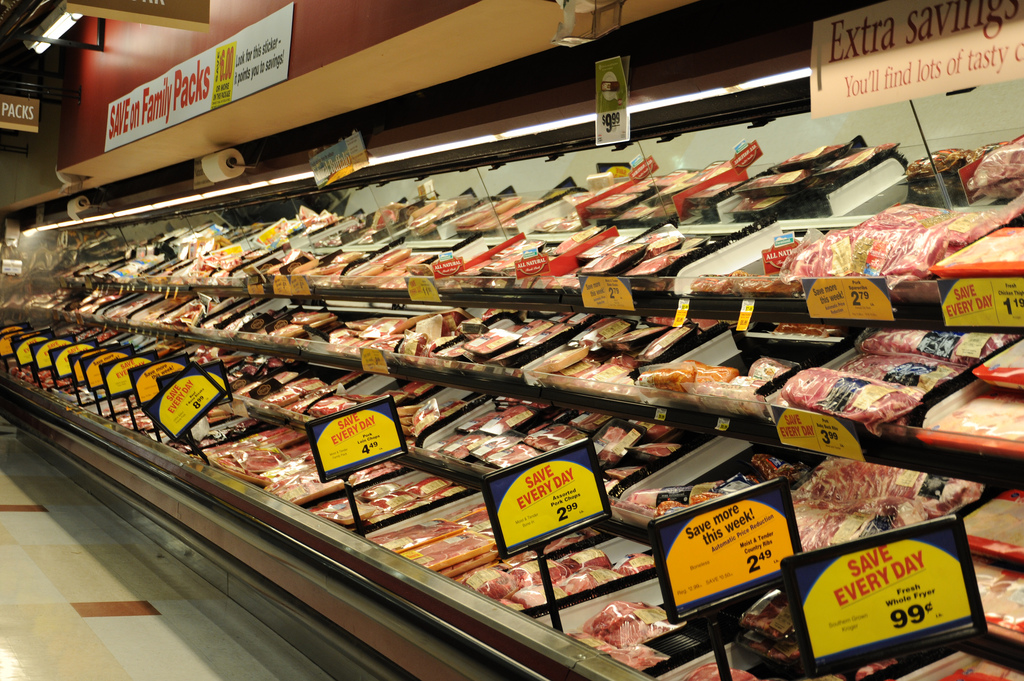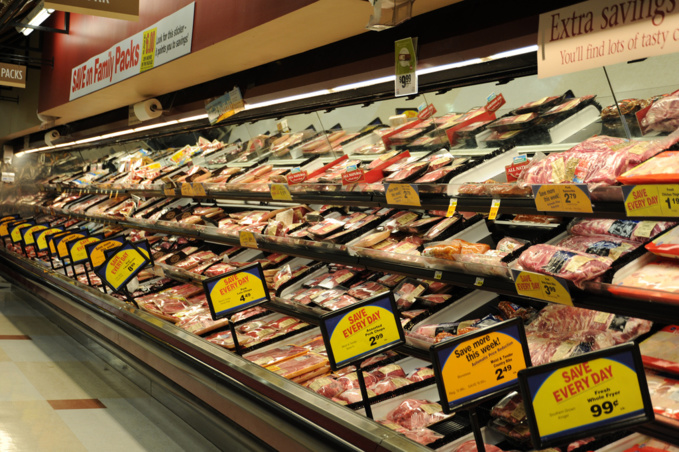China suspended imports of all meat products from Brazil, the world's largest beef exporter, as a precautionary measure, after inspectors were accused of taking bribes to give green light to sales of spoiled products. South Korea, the European Union and Chile have also reduced imports of meat from Brazil.
Brazilian police earlier on Friday raided Brazilian largest meat companies BRF SA and JBS SA, as well as several smaller manufacturers, as a part of two-year investigation into bribery of inspectors and officials to turn a blind eye to supply of damaged products.
China, which the US Department of Agriculture calls the fastest growing beef market in the world, last year provided nearly a third of Brazilian packaged beef exports of $ 13.9 billion.
Australia, Argentina and Canada could possibly fill the gap while the ban is being in force, said Mike Zuzolo, president of American brokerage company Global Commodity Analytics. However, each shipper faces its own problems in the market.
Most of export Brazilian cows are fed with grass, which makes the country a direct competitor to New Zealand and Australia. Australia, the world's second-largest meat exporter, is an unattractive substitute, as prices for its products have increased due to drought, said Derrell Peel, an agricultural economist at the University of Oklahoma.
Argentinian producers are still restoring their meat industry, after trade restrictions imposed under its former left government worsened exports, traders said.
According to the US Department of Agriculture, about 31% of imports of beef to China came from Brazil in the first half of last year. Australia has a 19% share of meat imports in China, and Argentina - about 8%.
The meat market in China is still dominated by small domestic meat farms since the country has long refused to buy American meat because of fear of mad cow disease in 2003. However, a ban on imports of Brazilian meat may push through resumption of negotiations on supplies between China and the United States.
Cargill, one of the world's largest commodity trading companies, said it is still too early to talk about how the Brazilian scandal could affect export of beef from the US. The Brazilian scandal can provide an overall increase in beef prices if it limits amount of beef sold in the world and forces buyers to rely more on other suppliers, said Ron Davidson, representative of the Canadian Council for Meat, of which Cargill is a member. However, beef, exported from Canada, the sixth largest supplier in the world, is mainly fed by grain, not grass.
"The Canadian product may look more competitive if there are less opportunities to import meat from Brazil," Davidson said.
The European Commission has already responded to the meat scandal in Brazil, saying that all those involved will lose access to the European market.
source: reuters.com
Brazilian police earlier on Friday raided Brazilian largest meat companies BRF SA and JBS SA, as well as several smaller manufacturers, as a part of two-year investigation into bribery of inspectors and officials to turn a blind eye to supply of damaged products.
China, which the US Department of Agriculture calls the fastest growing beef market in the world, last year provided nearly a third of Brazilian packaged beef exports of $ 13.9 billion.
Australia, Argentina and Canada could possibly fill the gap while the ban is being in force, said Mike Zuzolo, president of American brokerage company Global Commodity Analytics. However, each shipper faces its own problems in the market.
Most of export Brazilian cows are fed with grass, which makes the country a direct competitor to New Zealand and Australia. Australia, the world's second-largest meat exporter, is an unattractive substitute, as prices for its products have increased due to drought, said Derrell Peel, an agricultural economist at the University of Oklahoma.
Argentinian producers are still restoring their meat industry, after trade restrictions imposed under its former left government worsened exports, traders said.
According to the US Department of Agriculture, about 31% of imports of beef to China came from Brazil in the first half of last year. Australia has a 19% share of meat imports in China, and Argentina - about 8%.
The meat market in China is still dominated by small domestic meat farms since the country has long refused to buy American meat because of fear of mad cow disease in 2003. However, a ban on imports of Brazilian meat may push through resumption of negotiations on supplies between China and the United States.
Cargill, one of the world's largest commodity trading companies, said it is still too early to talk about how the Brazilian scandal could affect export of beef from the US. The Brazilian scandal can provide an overall increase in beef prices if it limits amount of beef sold in the world and forces buyers to rely more on other suppliers, said Ron Davidson, representative of the Canadian Council for Meat, of which Cargill is a member. However, beef, exported from Canada, the sixth largest supplier in the world, is mainly fed by grain, not grass.
"The Canadian product may look more competitive if there are less opportunities to import meat from Brazil," Davidson said.
The European Commission has already responded to the meat scandal in Brazil, saying that all those involved will lose access to the European market.
source: reuters.com



















